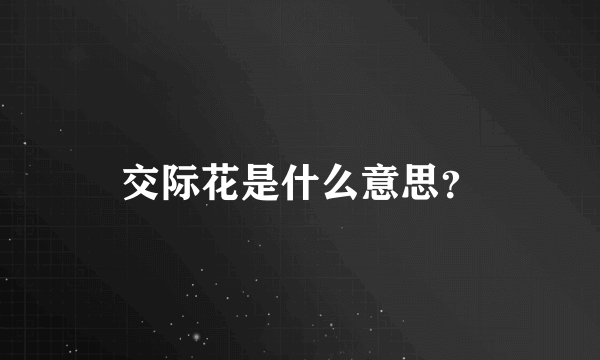急需美国日常交际用语(越多越好)
的有关信息介绍如下:
日常交际用语
一、Greetings(问候)
1.
Situational Expression(情景表达法)
A.
Good morning!
早上好!(用于中午十二点以前。)
B.
Good afternoon!
下午好!(用于中午十二点至下行六点之前。)
C.
Good evening!
晚上好!(用于下午六点至晚上九点。)
D.
Hello/Hi!
你好!(相互熟悉的人之间的问候用语,比较随便,一天中任何时间均可用。)
E.
How are you ?
你好吗?(属于常用一般性问候身体情况用语。)
F.
Very well, thank you. / Fine, thank you. And you?
很好,谢谢,你好吗?(回答“How
are you”的答语,前者比较正式,后者随便。)
2.
Practical Dialogues (对话实例)
A:
How are you, Tom?
B:
Fine, thanks. And you?
A:
I’m very well. Did you have a good summer holiday?
B:
Yes, thank you. How’s Kate?
A:
She’s OK, thanks.
二、Introductions(介绍)
1.
Situational Expressions.(情景表达法)
A.
This is Mr /Mrs /Miss /Comrade…
这是……先生/夫人/小姐/同志。(介绍某人给某人时的习惯用语。)
B.
How do you do?
你好。(初次见面时问候用语,比较正式。)
C.
Nice/Glad/Pleased to see/meet you .
见到你很高兴。(见面时的客气用语。)
D.
My name is … I’m a student/worker.
我叫……。我是学生/工人/……。(向人自我介绍的用语。)
2.
Practical Dialogues.(对话实例)
A:
Mum, this is my friend.
B:
How do you do?
C:
How do you do?
B:
What’s your name?
C:
My name is Kate Green.
B:
Nice to meet you. Sit down, please.
C:
Thank you.
三、Farewells(告别)
1.Situational
Expressions(情景表达法)
A.I
think it’s time for us to leave now.
我想我们该走了。(一般性告别用语。)
B.
Good-bye/Bye-bye/Bye!
再见。(一般性告别用语。Bye-bye比Good-bye的语气更轻快、随便,有时显得比较轻松。)
C.
See you later/tomorrow. See you. So long.
再见。
以上为常用告别用语,回答时只需要重复原话。
D.
Good night!
晚安!(只限于晚上告别或上床睡觉时用。)
2.Practical
Dialogues(对话实例)
A:
Well, I’m afraid we have to go now.
B:
Oh, do you have to ?
A:
Yes ,I’m afraid so. It’s getting late, and we have to get up
early in the morning.
B:
Don’t forget anything.
A: Thanks. I
think we have everything. Thank you for being with us. We enjoyed
ourselves very much!
B: It’s
pleasure. Good night!
四、Making
telephone calls.(打电话)
1.
Situational Expression(情景表达法)
A. Hello! May
I speak to …
喂!我可以和……通话吗?(用于叫对方听电话的习惯用语。)
B. Is that …
(speaking)?
是……吗?(这是打电话的用语。在打电话时,用来询问对方是否要找的接话对象。)
C. This is …
speaking.
我是……。(在打电话时,用来作自我介绍的用语。)
D. Hold on ,
please. / Hold the line, please. / A moment, please.
请等一下。
He / She
isn’t here right now.
他/她现在不在。
Can I take a
message for you?
要我替你留个口信吗?
E. I called to
tell / ask you …
我打电话来告诉/问你……。
2.
Practical Dialogues(对话实例)
(1)
A: Hello!
B:
Hello! May I speak to John?
A:
I’m sorry he isn’t here right now. Can I take a message for you?
B:
It’s very nice of you. Please ask him to bring my English book to
school tomorrow.
A:
OK.
B:
Thanks a lot. Bye!
A:
It’s a pleasure. Bye!
(2)
A: Hello, 88067992.
B:
Hello, could I speak to Jack?
A:
Speaking.
B:
Hi, Jack.. This is Mike speaking.
A:
Hi, Mike! How are you?
B:
Not bad. Would you like to see a film with me?
A:
I’d love to.
五、Thanks
and responses.(感谢和应答)
1.
Situational Expression(情景表达法)
A.
Thank you (very much).
Thanks
a lot.
Many
thanks.
以上均表示“谢谢”之意。
B.
Thank you for…
Thanks
for…
谢谢……。(表示为何事感谢对方,介词for后可接名词或接动词+ing
形式。)
C.
Not at all.
That’s
all right.
That’s
OK.
It’s
all right.
以上四个句子大致可译成“不用谢”或“没关系”。一般地说,当对方表示感谢时,这些句子可译成“不用谢”;表示道歉时,就译成“没关系”。
2.
Practical Dialogues(对话实例)
A:
Hello, Ann.
B:
Hi, Jim.
A:
Thanks for asking me to the party last Sunday. I enjoyed it very
much.
B:
Thank you for coming and for the beautiful present.
A:
Not at all.
六、Good
wishes , congratulations , responses (祝愿、祝贺和应答)
1.Situational
Expressions (情景表达法)
A.
Good luck!
祝你好运!(用于希望对方在某方面取得成功,交好运时的祝愿语。)
Best
wishes to you.
向你表示最良好的祝愿。
Have
a nice/good time.
祝你快乐。(表示“祝你玩得愉快”或“祝你过得快乐”。)
Congratulations!
祝贺你!(用于祝贺对方取得成功、交好运的贺语。)
B.
Thank you.
C.
Happy New Year!
新年快乐!
Merry
Christmas!
圣诞快乐!
以上均用于节日贺辞。
Happy
birthday to you!
生日快乐!
D.
The same to you.
祝你也一样。(用于回敬他人的贺语。)
E.
Say hello to …
向……问好。请向……致意。
Please
give my best wishes to her.
请转达我对她的祝愿。
以上两句均为请对方代自己向第三者问候时用语。
F.
I’ll do that.
我会那样做。(当对方请你代其转述某人的问候时,你就可以这样说。)
2.Practical
Dialogues(对话实例)
A:
Good morning, Miss Zhao!
B:
Good morning, Mrs King!
A:
Happy Teachers’ Day! Here are some flowers for you with our best
wishes.
B:
What beautiful flowers! Thank you very much.

